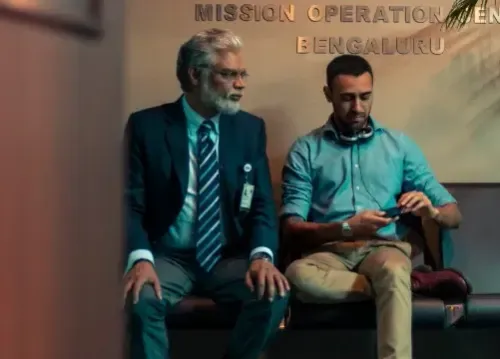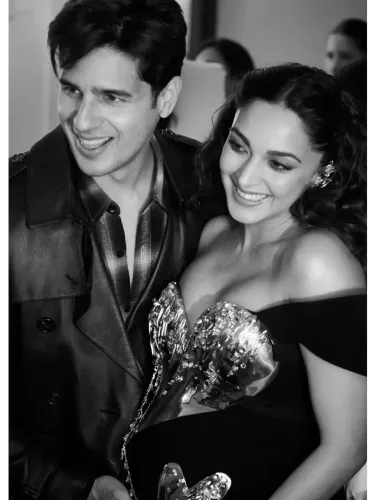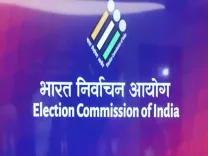Rashmika Mandanna: Am I Struggling with Expectations?

Synopsis
Key Takeaways
- Rashmika prefers to manage expectations regarding her films.
- 'Thamma' has received an enthusiastic response from audiences.
- Indian folklore plays a significant role in the film's storytelling.
- Intergenerational connections enhance the film's appeal.
- Rashmika's insights reflect a broader trend in the film industry.
New Delhi, Oct 24 (NationPress) The talented actress Rashmika Mandanna, affectionately known as the ‘National Crush’, expressed her delight over the positive reception of her recent horror comedy “Thamma”. She emphasized her preference for managing expectations regarding her film projects.
When asked whether she had predicted the film's success, Rashmika shared with IANS: “Honestly, when you're working on a film, you hope it performs well in the end.”
On its opening day, “Thamma” garnered an impressive Rs. 25.11 crore nett in India, and within just four days, it has amassed Rs. 57.63 crore, according to sacnilk.com.
Rashmika remarked: “Expectations? I struggle with them. I prefer not to have too many expectations. It's more of a relief when a film releases and viewers enjoy it. It's just like, yes, I accomplished it.”
Directed by Aditya Sarpotdar, “Thamma” features notable actors Nawazuddin Siddiqui and Ayushmann Khurrana, set in a fictional landscape. The film also includes a crossover with Varun Dhawan’s “Bhediya”.
Discussing the appeal of horror comedies across various demographics, Rashmika believes that “Thamma” and other films in the Maddock universe are deeply rooted in Indian folklore.
“The reason this film—or any film in this universe—has resonated so well is due to our strong connection to Indian folklore. This has always been part of our heritage, and now we’re finally presenting it to the public,” she explained.
Rashmika added: “That’s what unites us, as we are all familiar with these narratives, but it's the first time we’re actually seeing them on screen. This is why it is celebrated so widely, and all age groups appreciate it.”
“Parents are saying, ‘Yes, this is a story I’ve heard,’ while children are reacting with, ‘Why didn’t you tell me this before?’ Those moments make it all the more meaningful,” she concluded.










